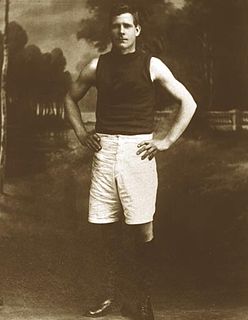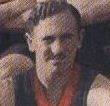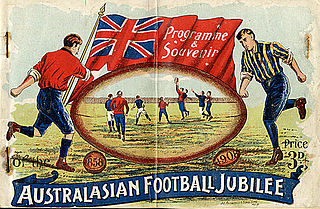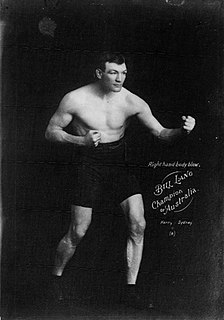
Haydn William Bunton was an Australian rules footballer who represented Fitzroy in the Victorian Football League (VFL), Subiaco in the West Australian Football League (WAFL), and Port Adelaide in the South Australian National Football League (SANFL) during the 1930s and 1940s.

Phillip Henry Matson was a record-breaking swimmer, and both a highly successful player and coach of Australian rules football in the early 20th century, chiefly in Western Australia.
Patrick Yost Walsh was an Australian rules footballer who played with the Essendon Football Club in the VFL/AFL.

Percival Barnes Wood, known as "Barney", was an Australian sportsman who played both first-class cricket and Australian rules football. He was killed in action while serving with the Second AIF.

The 1908 Melbourne Carnival was the inaugural Australian National Football Carnival, an Australian rules football interstate competition, held in Melbourne in August 1908. It was known at the time as the Jubilee Australasian Football Carnival because it was designed to commemorate 50 years of Australian rules football.
Halcombe George Brock was an Australian rules football ruckman who played 24 senior games with Port Adelaide Football Club in the South Australian National Football League (SANFL), and 4 senior games with the North Melbourne in the Victorian Football League (VFL). He died as the result of an air collision during a RAAF training exercise on Saturday, 2 August 1941.
Ross William Hudson was an Australian rules footballer who played with St Kilda. Joining St Kilda during army service in World War II, he died from injuries sustained in an accidental grenade explosion whilst serving with the Second Australian Imperial Force in New Guinea.
Gordon Harold "Gertie" Sawley was an Australian rules footballer who played with South Melbourne in the Victorian Football League (VFL).

John Samuel Wade was an Australian rules footballer who played with Port Adelaide in the South Australian National Football League (SANFL) and South Melbourne in the Victorian Football League (VFL). Playing in Port Adelaide's premiership side in 1928, he represented South Australia on four occasions before being recruited by South Melbourne in 1930 — however, he was not granted a clearance to play for South Melbourne until 1931.
The 1927 Melbourne Carnival was the sixth Australian National Football Carnival: an Australian rules football interstate competition.
Peter Anstey Dalwood was an Australian rules footballer who played for Norwood in the South Australian National Football League (SANFL) and Fitzroy in the Victorian Football League (VFL).

Bill Lang was an Australian professional boxer who held the national heavyweight title. He was also an Australian rules footballer who played with Richmond in the Victorian Football League (VFL).
William Leonard Chamberlain was an Australian first-class cricketer who played Sheffield Shield cricket for South Australia. He was also an Australian rules footballer for Norwood in the South Australian Football League (SAFL).
Ethelbert Luxmore "Bert" Renfrey was an Australian rules footballer who played in the South Australian Football Association, Victorian Football League and West Australian Football Association.

Cyril Louis Hoft was an Australian rules footballer who played for the North Fremantle and Perth Football Clubs in the West Australian Football League (WAFL) and the Glenelg Football Club in the South Australian Football League (SAFL).
The Victorian Football Club, "The Victorians", renamed the North Adelaide Football Club for the 1883 season, was an Australian rules football club based in North Adelaide, South Australia.

Andrew William Dougall was an Australian rules footballer who played for the Carlton Football Club in the Victorian Football League (VFL).
Algernon Edward Millhouse was an Australian rules footballer who played for the Melbourne Football Club and St Kilda Football Club in the Victorian Football League (VFL). He also played for the Norwood Football Club in the South Australian Football League (SAFL). He was captain-coach of Norwood for the 1914 season.
Hastings Talbot Woolley was an Australian cricketer. He played one first-class match for Tasmania in 1908/09.

The Woodville Football Club (SAFA) originally known as the Port Suburban Football Club was an Australian rules football club that participated in the foundation year of the South Australian Football Association. It is not related to the Woodville Football Club that joined the SANFL in 1964.









